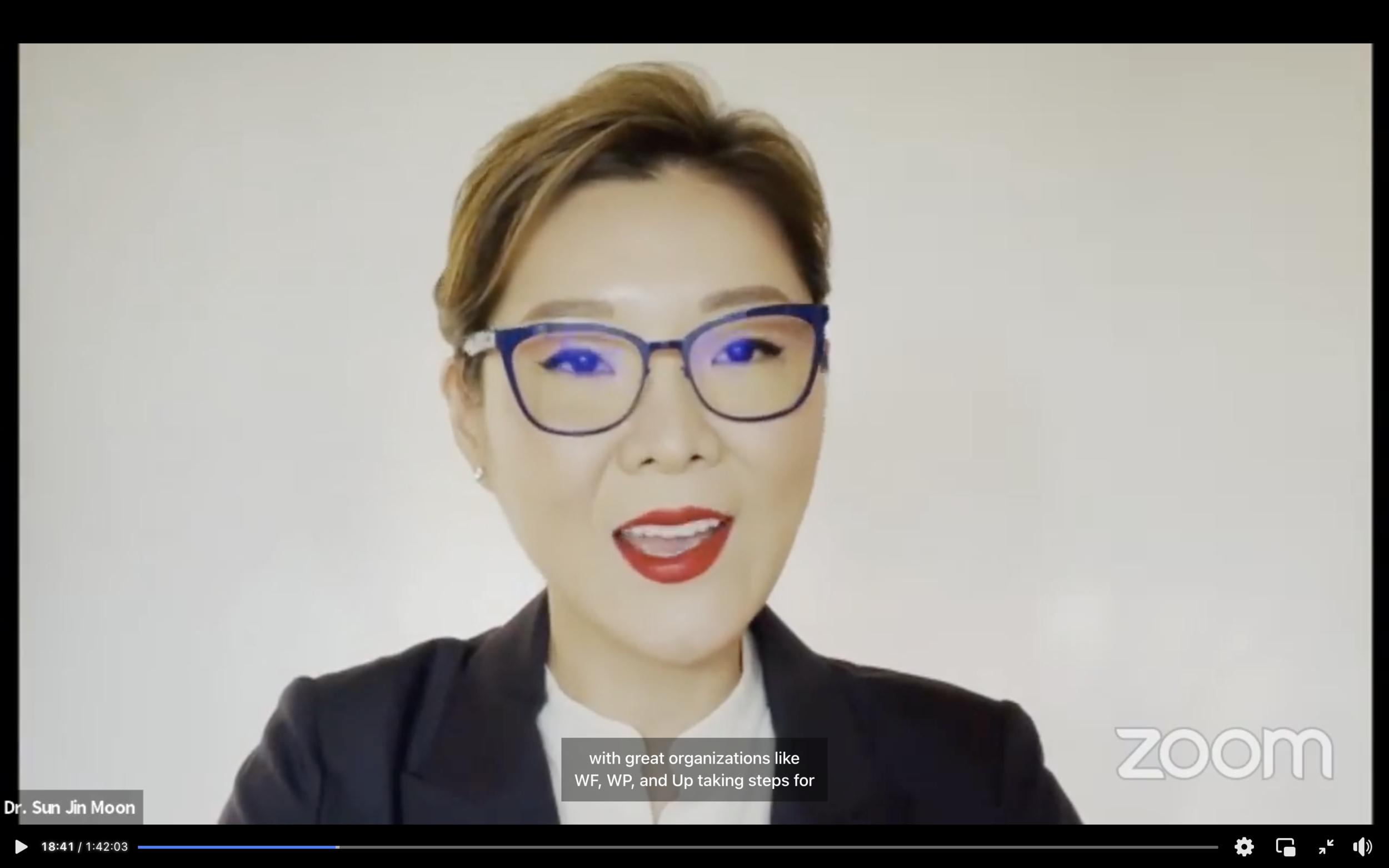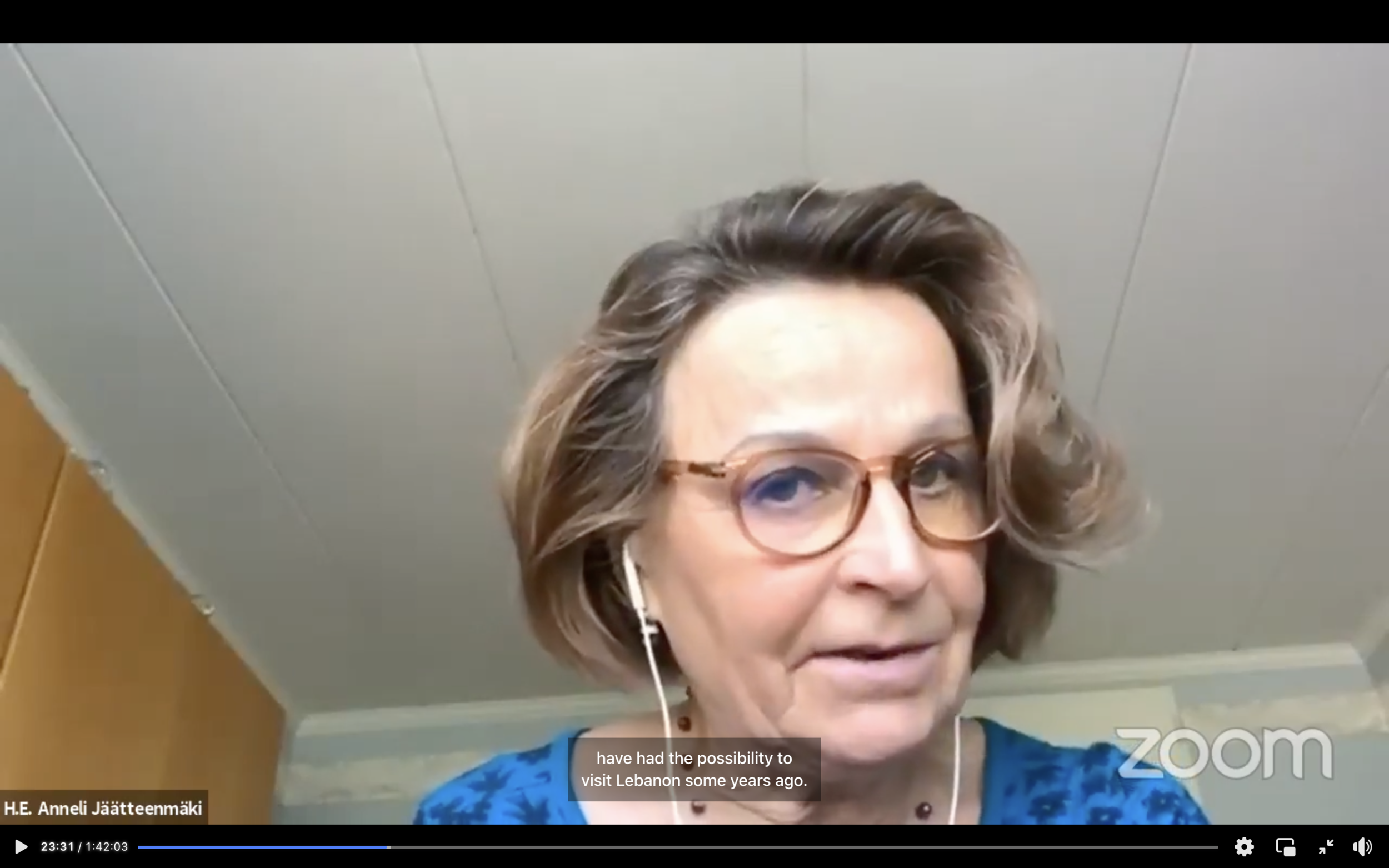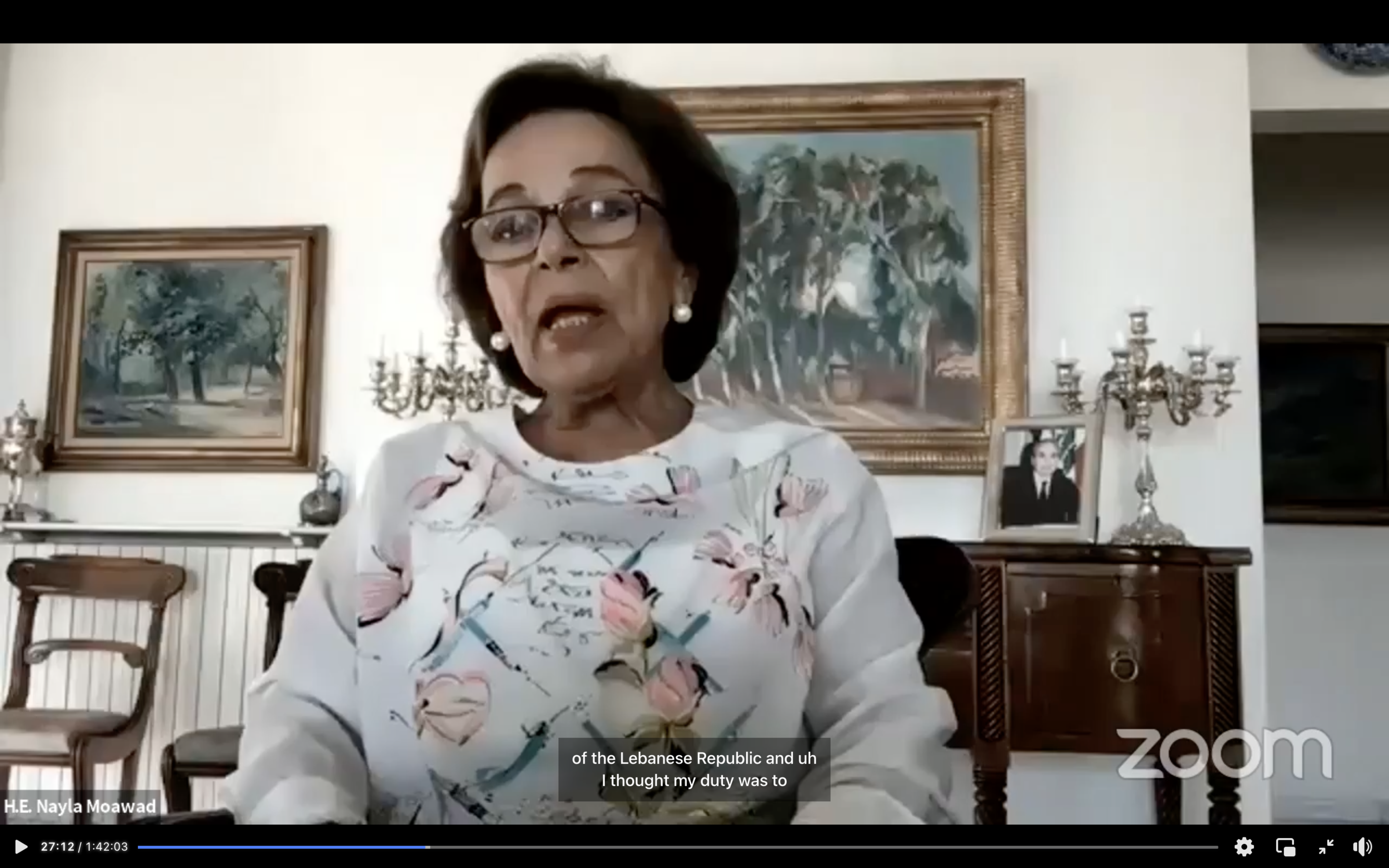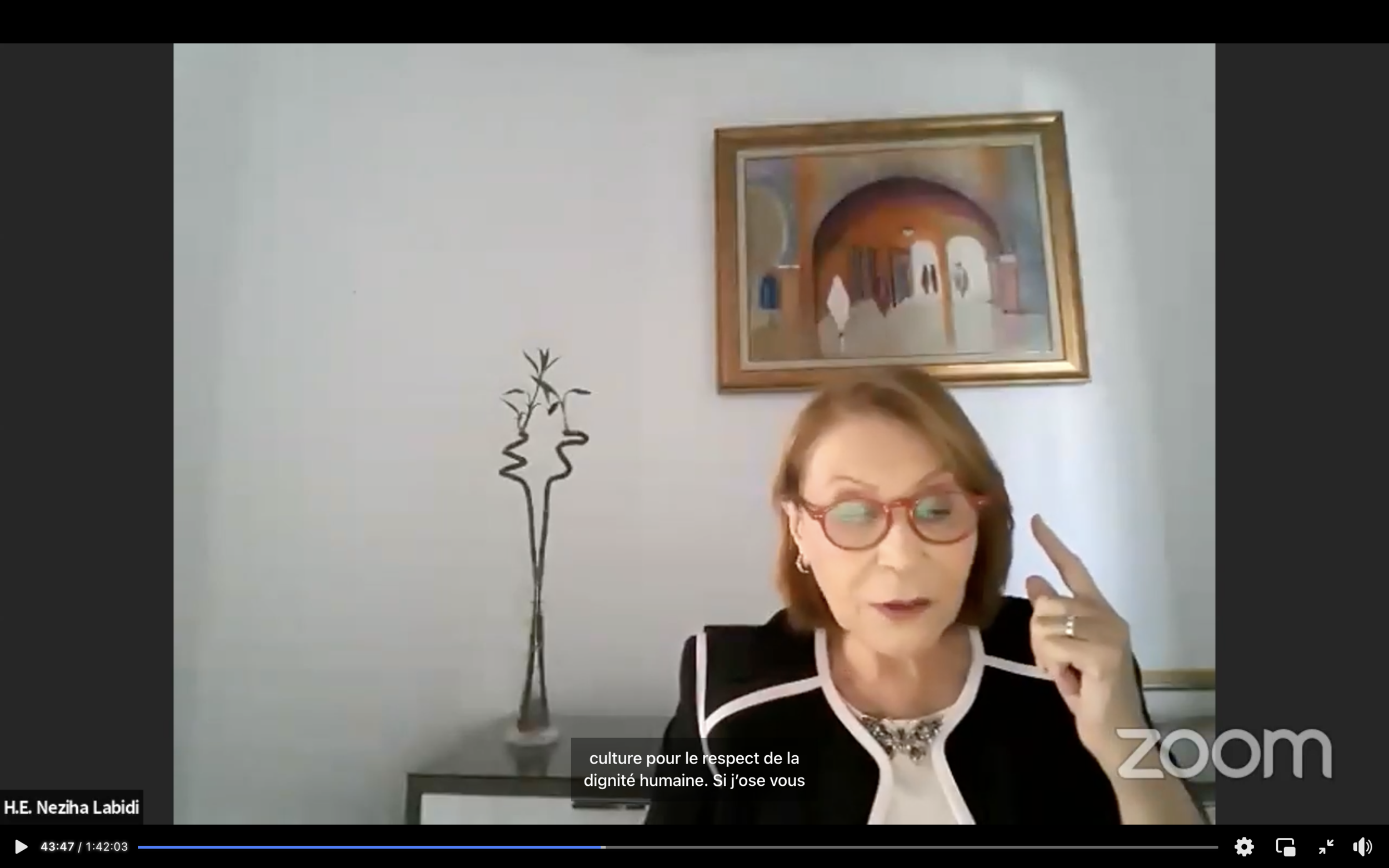Emerging Power of Women’s Diplomacy Toward Sustainable Peace (WFWP EUME)
Written by: Claudia Dittel
The online event “Emerging Power of Women’s Diplomacy toward Sustainable Peace,” organized by the International Leadership Conference (ILC), took place on July 28, 2021. Outstanding women from South Korea, Europe and the Middle East, who contributed to peace and reconciliation, addressed the issue of “Peace in the Korean Peninsula.” The conference was held at the aftermath of the restoration of communication hotlines between the leaders of the Democratic People's Republic of Korea (DPRK) and the Republic of Korea (ROK) after a year of silence.
Mrs. Carolyn Handschin-Moser, Coordinator for Europe and the Middle East in the International Association of First Ladies, opened the meeting. She is also Vice-President of Women’s Federation for World Peace International (WFWPI) and Director of WFWPI Office for United Nations Relations globally. H.E. Anneli Jäätteenmäki, first female Prime Minister of Finland in 2003 and previously Minister of Justice (1994-1995), moderated the conference.
The first speaker was Dr. Sun Jin Moon, Senior Vice President of WFWPI and daughter of Rev. Sun Myung Moon, Founder of the Unification Movement for the two Koreas, and Dr. Hak Ja Han Moon, Founder of the Women’s Federation for World Peace. On the heels of her parents’ revolutionary initiatives for peace, Dr. Moon stressed the importance of non-governmental actors at the Track II level in enhancing reconciliation between the two Korean communities, especially in a context in which the relations between Seoul and Pyongyang have always been hostage to geopolitical dynamics and external actors’ influence: the confrontation between USSR and USA during the Cold War and the current between China and USA.
The next speaker was H.E. Nayla Moawad, former First Lady (1989) and Minister of Social Affairs (2005-2008) of Lebanon. After the assassination of her husband, President René Moawad, she founded and presided over the René Moawad Foundation. She has promoted many other relevant initiatives to advance human, economic and sustainable development and women’s rights in Lebanon and in the Arab world. She emphasized the role of empathy, as she learned from her several trips as a First Lady in bordering regions close to Syria and Israel. H.E. Moawad pointed out the centrality of women in peace and reconciliation initiatives. Her experience is certainly valuable, considering Lebanon’s sectarian divisions in politics and corrupted ties that forced the nation into an unprecedented economic crisis.
Her speech was followed by the one of H.E. Naziha Labidi, Minister of Women, Family, Children and Senior Citizens of Tunisia from 2016 to 2020. She is responsible for plenty of initiatives that promote Women’s diplomacy for peace in Tunisia, Africa and the Middle East. H.E. Labidi asserted that, when women participate in reconciliation initiatives, there are bigger chances of success. She reported the significant breakthrough represented by the 1956 Code of Personal Status in Tunisia, which institutionalized equality between women and men.
The last speaker, but certainly not of less importance, was Mrs. Kholoud Wattar Kassem, Founder and President of the NGOs Lebanese Women Toward Decision Making and Mothers from Lebanon. She ran several times for the Lebanese Parliament and eventually declared the intention to run for the 2022 Parliamentary elections. She shared her amazing experience of how she entered politics in such a troubled scenario as Lebanon for women’s rights. Mrs. Wattar Kassem talked about how she had to fight against a conservative community and how she transformed the stereotypes around her, including her husband’s standpoint, who eventually supported her.
Mrs. Marcia De Abreu, chairperson of WFWP Spain and Secretary General of WFWP Europe, moderated the Q&A questions. A first question was addressed to H.E. Naziha Labidi by H.E. Jäätteenmäki regarding the modalities by which to activate more women. H.E. Labidi stated that it is essential to create specific floors for women’s political engagement and to promote women in decision-making positions, being these in governmental bodies or in civil society. In particular, she suggested implementing local and small-scale projects in towns, so to engage local youths and to raise youth’s awareness regarding environmental issues, as today’s young generations will deal with increased competition for resources in the coming decades.
A second question was addressed to both H.E. Labidi and Mrs. Wattar Kassem regarding future perspectives for the reconciliation of the two Koreas, in the face of a low number of women diplomats, especially in North Korea. H.E. Labidi suggested that women from the civil society in the two countries should join their forces and cooperate in projects of common interests in the sphere of women’s rights and in the name of a common cultural past. Mrs. Wattar Kassem outlined that women should “make their own mindset” and lobby together to transform society.
Overall, the webinar brought to lights insightful stories and lessons learned from leader women from three continents that sent a message of peace, hope and reconciliation between the two Koreas.






